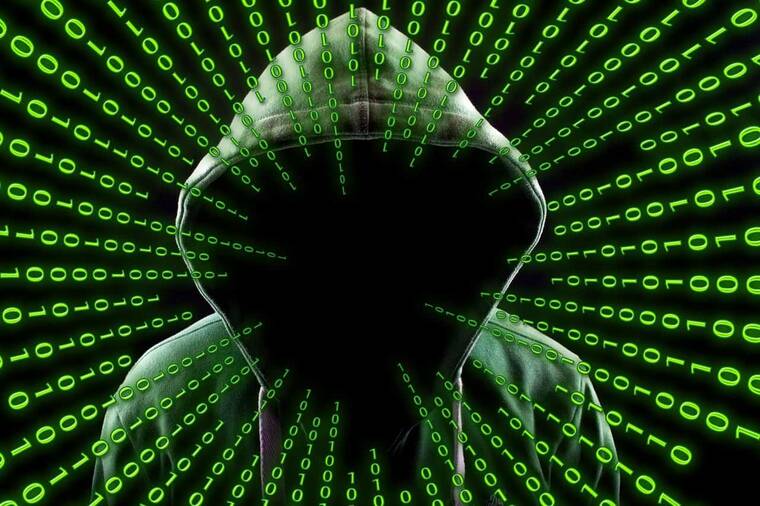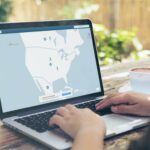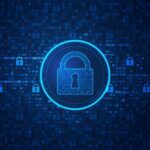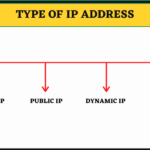您的 IP 地址对于在线发送和接收信息至关重要。但是,如果黑客知道您的 IP 地址,他们可以使用它来获取非常有价值的信息,包括您的位置和在线身份。使用此信息作为起点,他们可能会入侵您的设备、窃取您的身份等等。
知道您的 IP 地址的人会有危险,但很少有人讨论。犯罪分子可以使用您的 IP 对您和其他人发起各种网络攻击和诈骗。然而,在开始之前,先看看您的个人 IP 地址是什么:我的 IP 是什么?
在这篇文章的结尾,您将知道如何保护自己并找到隐藏 IP 地址的方法,很简单。
别人怎么能找到我的IP地址?
您的 IP 地址是您的 ISP 分配给您的唯一一串数字,例如在线流量的交付地址。如果您连接到不同的 Wi-Fi 或搬家,您的 IP 地址将随着您的位置而改变。
大多数 ISP 使用动态 IP 地址,这些地址并不固定在您的设备上,但如果您愿意,您可以使用静态 IP(在此处了解有关不同类型 IP 地址的更多信息)。例如,如果您希望您的计算机 IP 地址始终保持不变,您可以通过设备的设置进行指定。如果您希望将某些数据直接从路由器发送到您的计算机 IP 地址,这在端口转发时很有用。
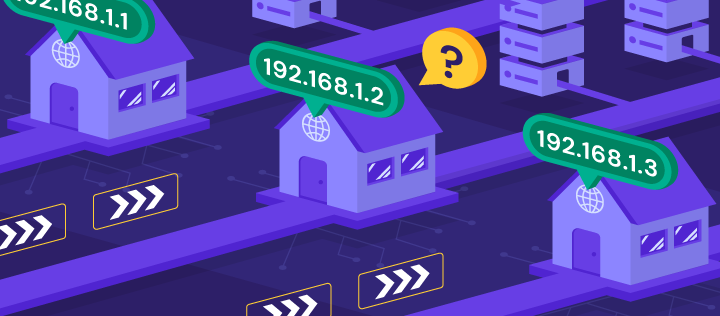
由于您的IP 地址包含有关您的某些信息,因此有人可能希望将其用于恶意目的。人们可以通过多种方式获取您的 IP 地址。这里仅仅是少数:
- 通过借用您的设备
如果有人借用或使用您的计算机,他们可以在几秒钟内找出您的 IP 地址,因为有无数免费网站可以让您这样做。 - 来自一封电子邮件
如果您向某人发送电子邮件,他们可以检查邮件的标题,其中可能包含您的 IP 地址。雅虎!众所周知,Microsoft Outlook 在电子邮件标头中包含 IP 地址。 - 点击一个链接
您单击的任何链接都需要为另一端的服务器提供您的 IP 地址,以传递链接提供的内容。拥有该服务器的人将看到您的 IP 地址。 - 通过入侵您的路由器
如果有人猜出了您的路由器密码并登录,他们可以轻松查看您的 IP 地址。 - 从网络服务器
每次您访问网站时,您的 IP 地址都会被收集并存储在服务器上。任何拥有该服务器的人都可以去查找您的 IP。 - 点击广告
当您点击广告时,您将 IP 提供给服务提供商。一些在线广告可能由恶意行为者创建,并危及您的安全。 - 参加在线论坛
如果您喜欢在家中连接到互联网时参与各种讨论,论坛管理员可以查看您的公共 IP 地址并嗅探您的位置。 - 连接到虚假热点
黑客可以设置虚假热点并查看您的 IP 地址和个人信息,甚至用恶意软件感染您的设备。 - 在社交网络上
虽然使用社交媒体很有趣,但这些平台收集了大量有关您的生活、朋友、习惯、兴趣和 IP 的敏感信息。
跟踪 IP 地址是非法的吗?
只要不用于犯罪活动,跟踪您的 IP 地址是合法的。您访问的网站、您使用的应用程序,甚至您的 ISP 都会收集您的 IP 地址以及其他个人信息。
但是,个人用户也可以轻松追踪您的 IP 地址。如果他们不打算以任何方式伤害您,那么没有这样的法律会禁止他们窥探您——除非他们的好奇心涉及黑客或社会工程技术。
VPN 会隐藏我的 IP 地址吗?
是的,它确实。VPN完全隐藏您的IP 地址并加密您的互联网连接。更好的是,VPN 可以防止像您的 ISP 这样的第三方窃听您的数据。您的在线活动无法追溯到您,为您提供强大的安全保障。
NordVPN 在 59 个国家/地区拥有超过 5500 台服务器,为您提供最佳速度。使用一个 NordVPN 帐户,您最多可以保护六种不同的设备:智能手机、平板电脑、笔记本电脑等。您也可以将它安装在您的路由器和不直接支持 VPN 功能的安全小工具上。
您可以在几秒钟内从一台服务器跳转到另一台服务器,更改您的 IP 地址并隐藏您的位置。立即保护您的在线隐私。
别人可以用您的 IP 做什么?
虽然您的 IP 地址不会泄露您的电话号码或公寓位置等敏感信息,但黑客仍然可以使用您的 IP 来对付您。如果网络犯罪分子知道您的 IP 地址,后果可能是毁灭性的:
- 有人可以获取您的位置并在现实生活中侵犯您的隐私
您的 IP 地址会显示您所在的城市,因此如果有人恶意发现它,您可能会遇到麻烦。假设您已在社交媒体上宣布您要去度假。犯罪分子只需要做一些额外的挖掘工作就可以找到你的房子,并在你离开时偷窃它。 - 有人可以使用您的 IP 入侵您的设备
互联网使用端口以及您的 IP 地址进行连接。每个 IP 地址都有数千个端口,拥有您 IP 的黑客可以尝试所有这些端口来暴力连接,例如接管您的手机并窃取您的信息。如果犯罪分子确实可以访问您的设备,他们还可能在其上安装恶意软件,这可能会暴露您的 IP。 - 有人可以冒充您获取您的 IP 地址
您的 ISP 可能会向其他人透露您的 IP 地址。在社交媒体上知道您姓名的犯罪分子可以联系您的 ISP 并尝试冒充您或使用网络钓鱼攻击来窃取您的个人信息。请记住,电信运营商只是使用具有大量个人身份信息的系统的人。 - 雇主可以跟踪您的活动
IP 归 ISP 所有,每个 IP 都分配给一个用户。当您连接到您的工作网络时,您的雇主可能会看到和跟踪您在网上所做的一切 – 几乎不会给您任何隐私。 - 黑客可以通过 DDoS 攻击攻击您
如果黑客知道您的 IP 地址,他们可能会通过 DDoS(分布式拒绝服务)攻击来伤害您。DDoS 攻击使用由黑客控制的大量计算机向您的设备充斥流量,使其与互联网断开连接并完全关闭。 - 网络犯罪分子可以陷害您从事非法活动
众所周知,黑客使用被黑的 IP 地址下载威胁国家安全的非法内容以及他们不想追溯到他们的任何其他内容。保护您的 IP 地址,就是保护自己。
如何阻止某人使用我的 IP 地址?
即使您认为风险不适用于您,您也应始终保护任何个人身份信息。只要有足够的决心,一个坏演员只要上网就可以拼凑出一个完整的身份,而你的 IP 可能就是起点。
以下是保护您的 IP 地址并防止自己被黑客利用的三种方法:
- 更改您的隐私设置
- 更新防火墙和路由器
- 使用 VPN
VPN 还能提供哪些其他好处?
VPN 将在您的设备和 VPN 服务器之间建立加密隧道。这意味着当您的数据从您的设备移动到服务器时,没有人可以监视您的数据——甚至是您的互联网服务提供商 (ISP)。
数据从未像现在这样有价值。您的 ISP 可以监控您的活动并将该信息出售给广告商和其他第三方。黑客可以窃取您的密码并使用您的私人信息发起网络钓鱼攻击。保护您的数据至关重要。
NordVPN 提供了许多特别有用的额外功能,其威胁防护系统将保护您免受高风险网站和其他已知威胁的侵害,从而增强您对恶意软件的防护。启用Kill Switch后,可以避免任何意外的数据泄露。借助NordLynx协议,可以享受无与伦比的速度,而不会影响安全性。
